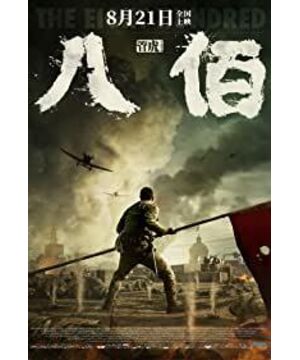After watching the movie, I was still full of heavy hearts. One side was heaven and the other was hell. Heaven was a place occupied by Westerners. Both China and Japan fought so carefully, lest a cannonball land on the other side of the river.
Speaking of which, the Meiji Restoration in Japan and the Westernization Movement in China started almost at the same time, both because the country was attacked by the Western powers and launched a self-rescue movement. Although historically, the Qing Dynasty perished, China has been weak for a century, and Japan has succeeded, but in fact, the two countries have embarked on the same path. In just 34 years after the fall of the Qing Dynasty in 1911, the once prosperous Empire of Japan was also in ruins, and today it is still a normal country that cannot even have an army. Where is the reason?
The background of the film is the Battle of Songhu. In 1939, Chen Cheng summed up the reasons for the failure of the Shanghai War and pointed out: the war has begun, and strategy should be the main one, and strategy should not be hijacked by political strategy... Just like the 800 strong men, in the mind of the chairman, it is The play for the West is actually more than 800 strong men. The entire Songhu Battle was a strategy to obey the political strategy, which also led to confusion in the command and caused huge losses.
On the other hand, in Japan, it is completely the other way around. If the Sino-Japanese War was a strategy for the advance of the Russo-Japanese War, or a war to compete for Russia’s interests in the Far East, but the success of the huge military adventure allowed Japan to earn enough war dividends and become one of the great powers. After that, Japan’s The political strategy is completely subordinate to the strategy. The 918 and 77 Incidents, the Japanese navy's strategy on Hainan Island is also imitating 918, and the Japanese army's frequent "subordination to the top" has caused the Japanese government to completely lose control of the army.
At this time, who still remembers that China and Japan are adjacent countries, and they are fighting each other, just like in the movie, the two countries are fighting in hell, and the powers separated by a river are watching a play in heaven.
Chairman Mao said it well: imperialism will not die if it kills me.
This I, probably refers to not just my country...
To this day, Western powers are still staring at Asia with vigilance. In the 1980s, Japan's economy took off, so in 1985, the United States, Germany, Britain and France concocted the "Plaza Accord", which directly burst Japan's economic bubble and Japan ushered in a lost 20 years. , still bleeding
Recently, the rise of my country has attracted the attention and attack of the West as early as 20 years ago, and it has also ushered in a climax in recent years.
At the same time, the West is always vigilant about the unity of Asia. Just like the example of the "Diaoyu Islands Incident", the Diaoyu Islands was originally a deserted island where the US Air Force practiced bombing in the 1960s. As Japan-Japan relations deteriorated, American goods entered the market in large quantities to replace Japanese products in China.…
If we open the Mao election, the first sentence is: Who is our enemy? Who are our friends? This is the first question of the revolution.
But is unity easy? Just such a film, the quarrel caused is already overwhelming...
When do we need to fight in the dark hell, when do we need to look to the other side and envy the heaven there?
View more about The Eight Hundred reviews











